In-laws can be a mixed bag. Some are perfectly lovely and a pleasure to be around, but others are rude, condescending and sometimes downright toxic. Ultimately, bad in-laws can be a test of a relationship. Because bad behavior is often selective and family drama shows who one’s partner will prioritize in the end.
A woman asked the internet if she was wrong for going no contact with her in-laws after she overheard them saying absolutely horrible things about her. Readers were split on her reaction and debated the entire situation in the comments section.
Learning your in-laws hate you is a horrible feeling

Image credits: CharliePix (not the actual image)
But one woman wondered if going no-contact was too much
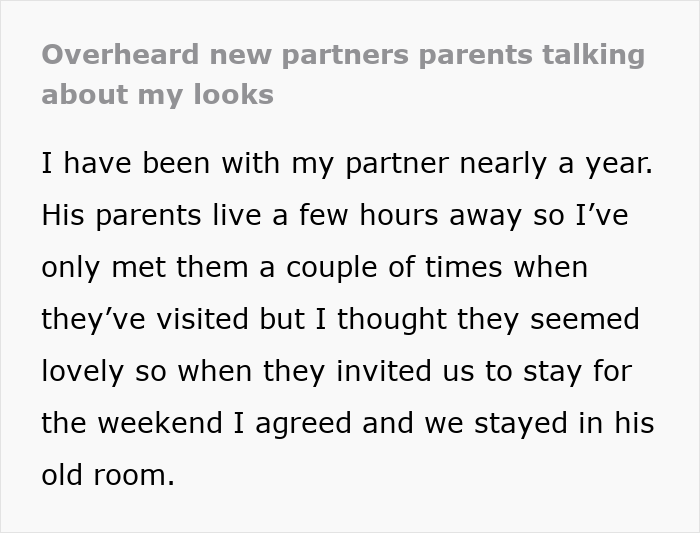
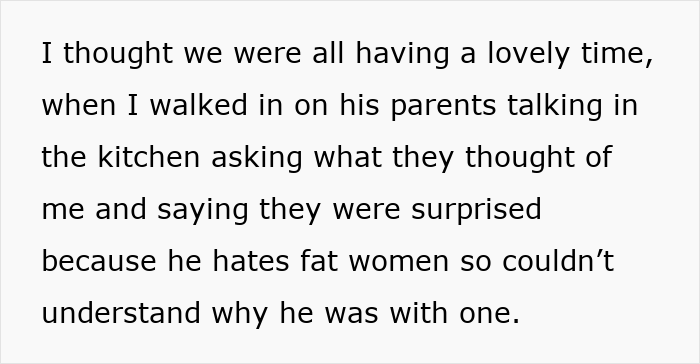


Image credits: joshua_resnick (not the actual image)



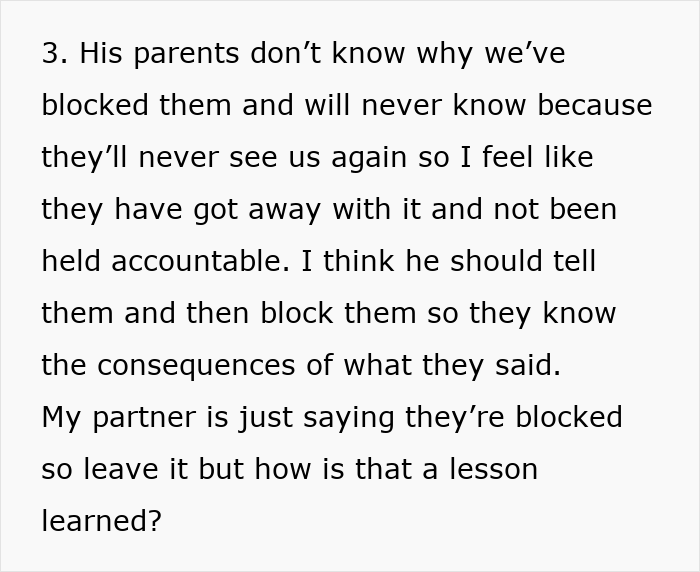
Image credits: ninetyninedays
Cutting ties is hard, but sometimes necessary
It’s a hard emotional journey to navigate in a relationship in which you and your partner have determined to go no contact with their parents, especially if it’s due to something biting being said about you. It’s a decision that comes with sadness, stress, and second-guessing even when you know it must be done. Choosing to cut someone off from a parent, or being on their side as they do this, doesn’t get done easily. When the conflict centers around disrespect or cruelty to you, the emotional stake is higher still, and so is the sense of urgency to contain the damage with sensitivity, honesty, and solidarity.
The initial step is to anchor yourself in the thinking behind the decision. If their parents spoke condescendingly to you, belittled, nosily, or habitually undermining, and efforts to have the problem respectfully addressed were met with dismissal or retaliation, you can reasonably have boundaries. No contact isn’t punishment; it’s about protecting emotional well-being. Framing it that way, in both your conversations with each other and within yourself, can help you more easily feel more anchored when guilt or social expectation appears.
It’s also important to stay in harmony with your partner. Although the insult was because of you, they’re the one cut off from family, and that is an emotionally heavy load. They may struggle with loyalty, bereavement, or family conditioning causing them to second-guess their choice. Give them room to feel conflicted without assuming it’s a reversal or blaming you. Open check-ins in which the two of you talk openly to each other, without defensiveness, can be what keeps the relationship going. You don’t want to be two people reacting separately to the same crisis.
It’s still important to keep working on your relationship
At the same time, notice how much space the problem is occupying in your relationship. It’s so simple for no-contact options to be the linchpin of your dynamic, one that lingers at the periphery of holidays, future plans, even mundane conversation. Although it’s important not to stifle the problem, it’s equally important to nurture the other elements of your relationship. Make moments of happiness, intimacy, shared aspirations, and new traditions that make you feel like you’re building something with each other, and not just closing the door on something painful.
You may also face outside pressure: estranged parents, mutual friends, or even the estranged parent themselves can attempt to guilt trip or bargain you back into the family. Before that happens, determine what your boundaries are and who will represent you if someone calls you. You need both of you to feel like you have each other’s backs. If it does happen that your partner does not stay the course, try to separate their befuddlement from your own pain, firmness is acceptable, but allow for understanding, especially if it’s still hurting them over the loss of the family they wanted.
Lastly, understand that healing does not necessarily equal reconciliation. Oftentimes, the most healthy way forward is embracing distance, grieving what could have been, and prioritizing the chosen family you are building together. Therapy, either individual or couples, is a useful tool during this journey, and it can assist each of you in working through guilt, grief, and long-established emotional patterns. A no-contact boundary is not necessarily a failure. When negotiated with dignity, empathy, and mutual respect, it can be the start of a fresh new chapter in your relationship, one where respect, safety, and emotional integrity are at the forefront. It might not be simple, but it can be the opening move to creating something much stronger than what was broken.
Some readers needed more details
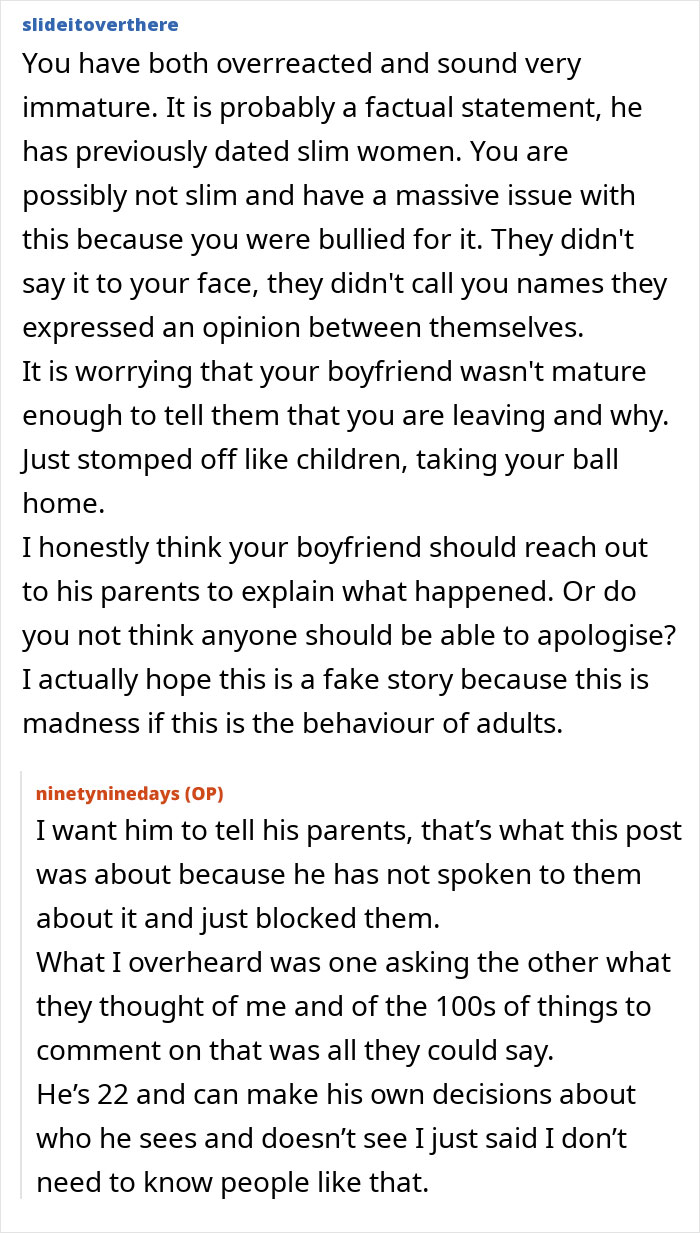
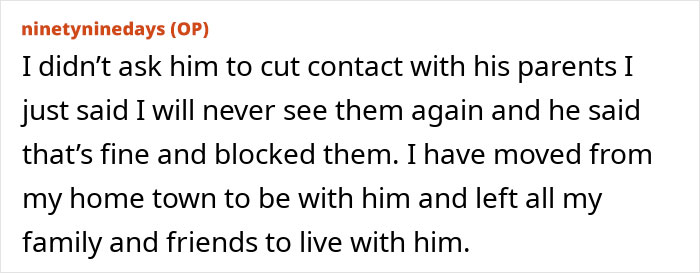

Many actually thought she went too far




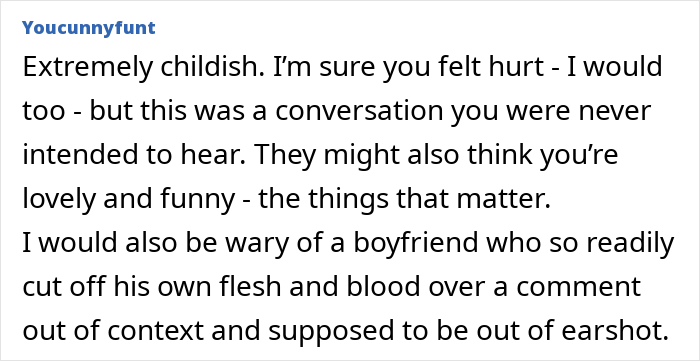

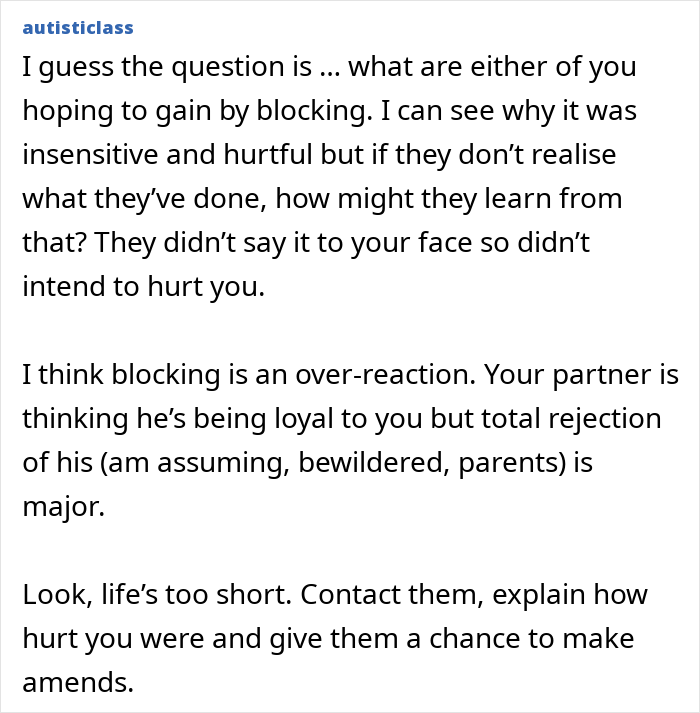
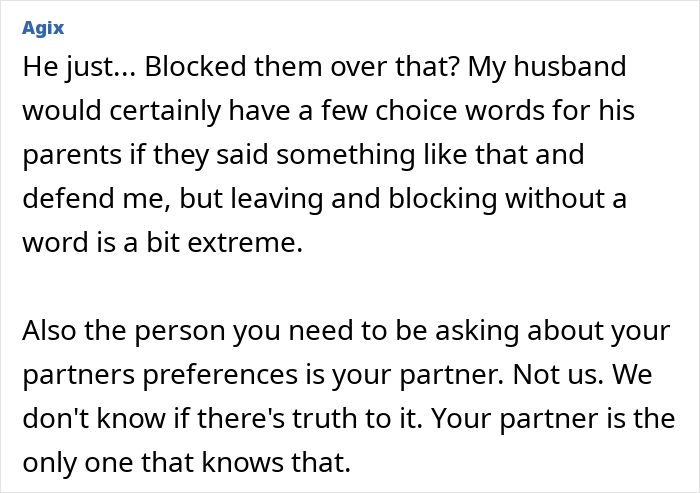

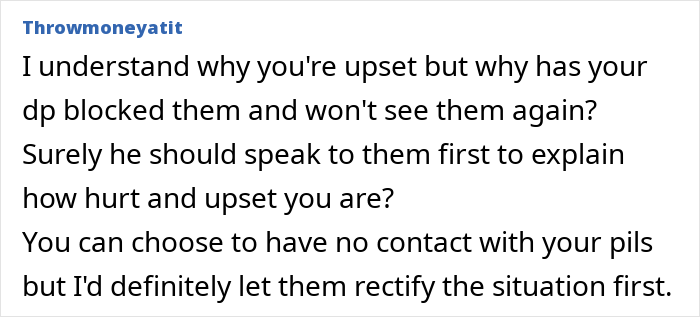
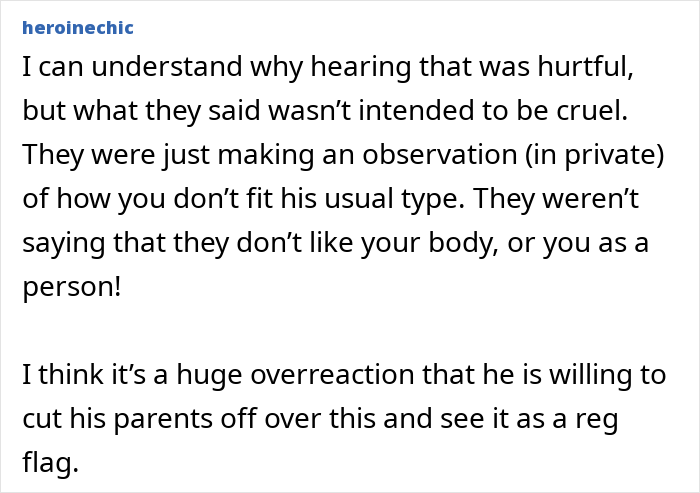

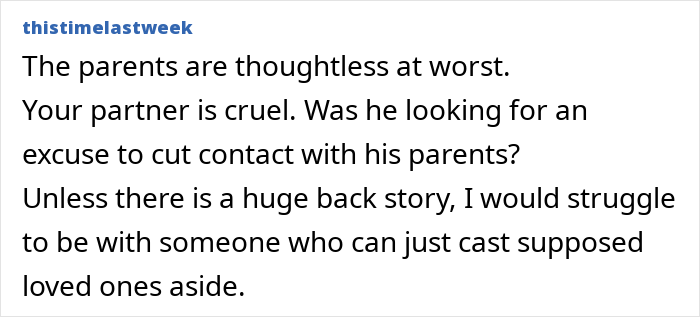


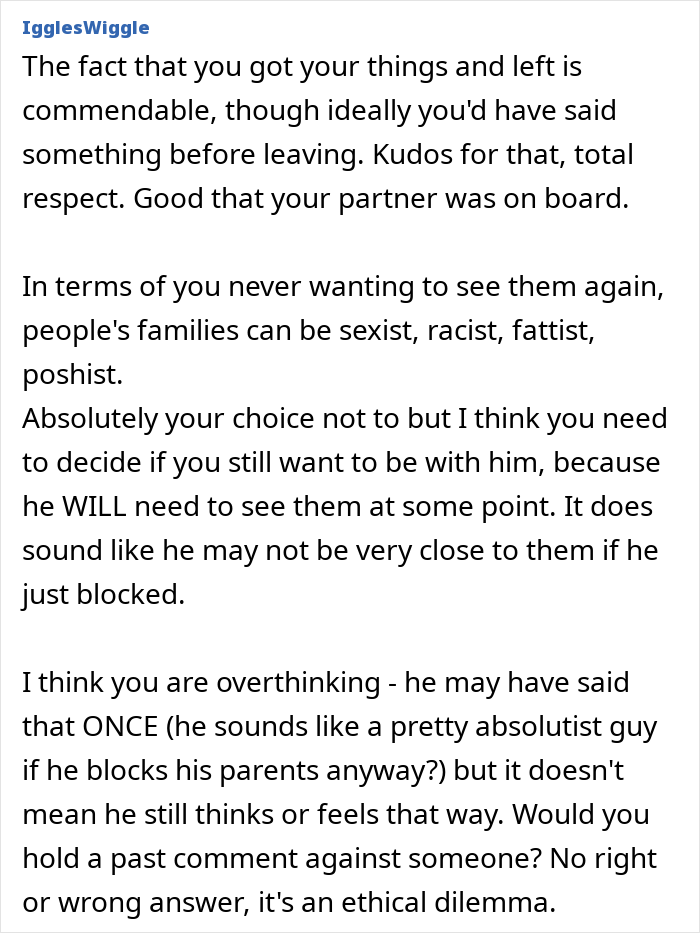



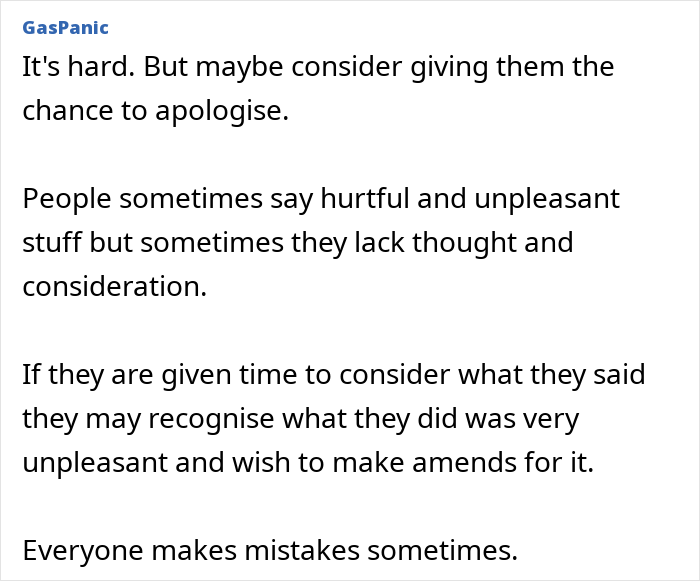

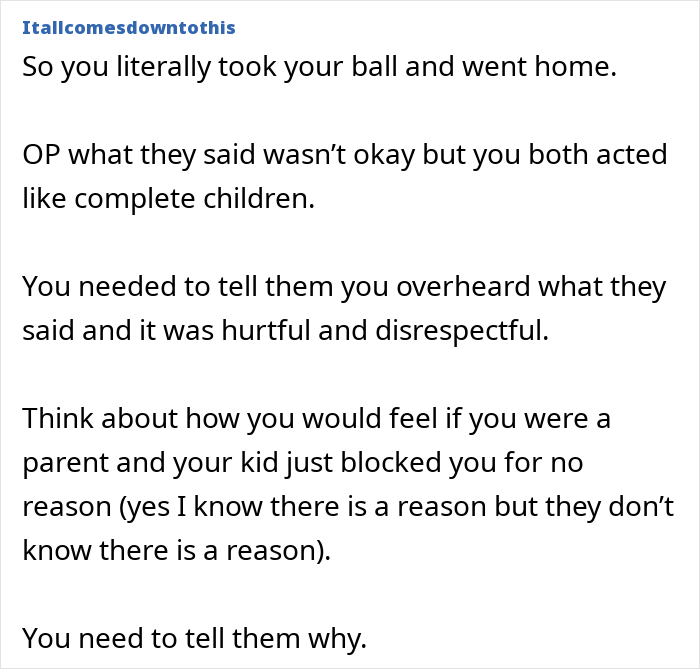
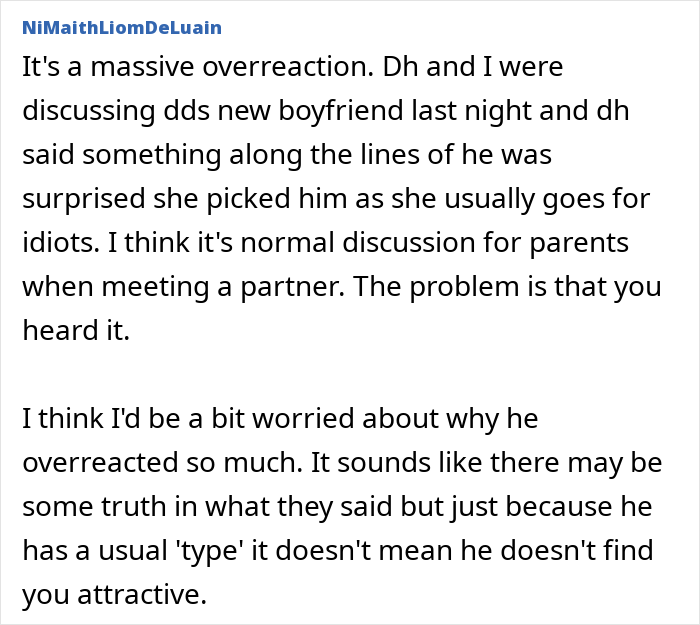
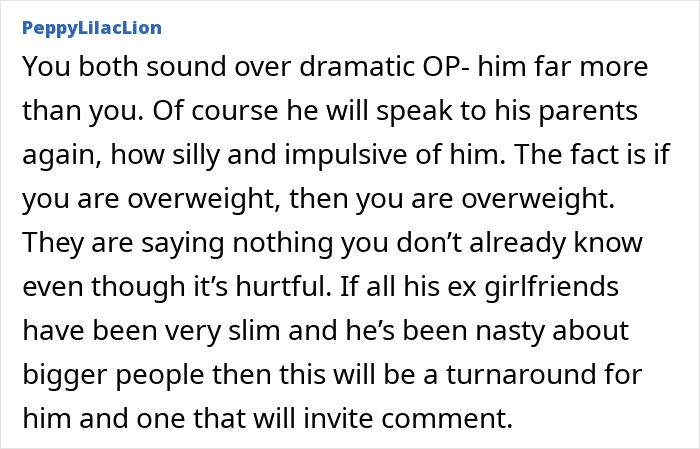


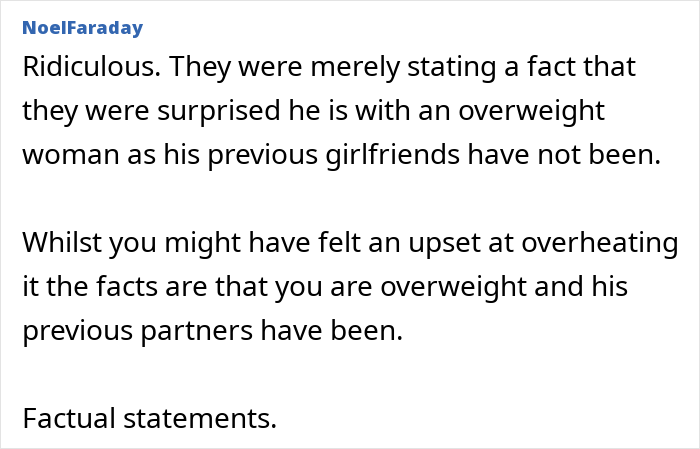

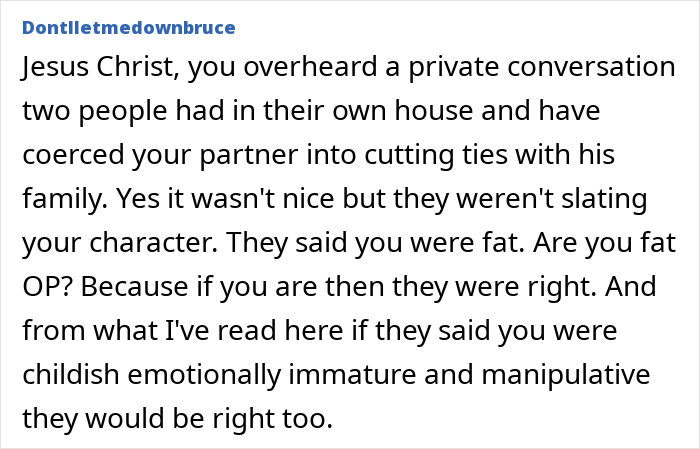
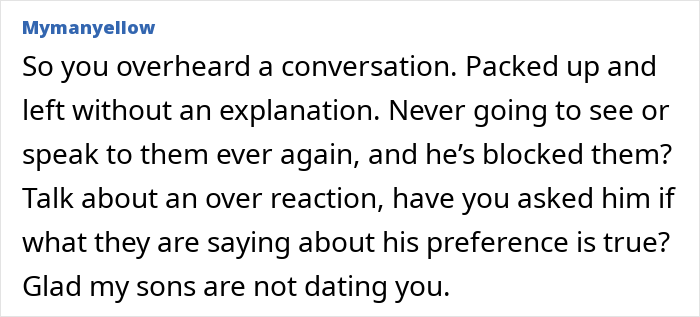
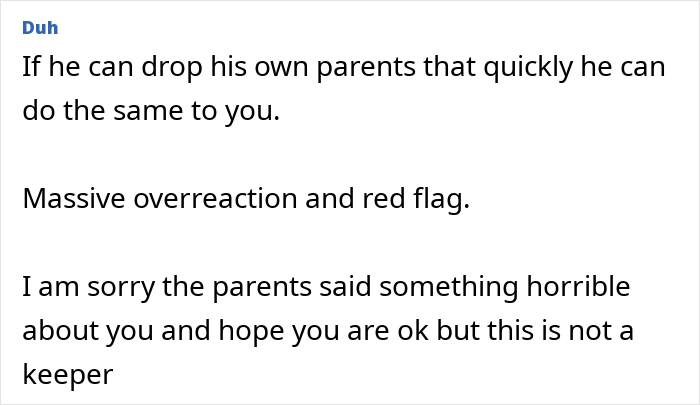
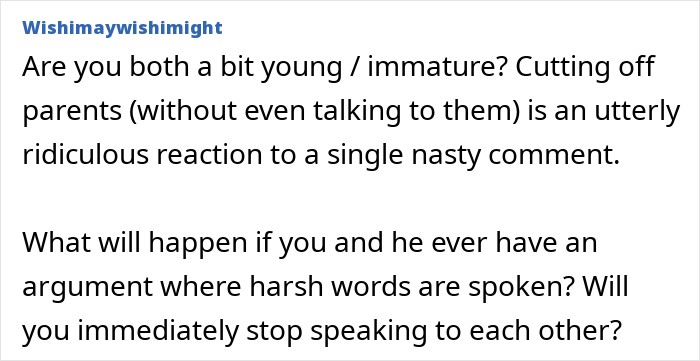
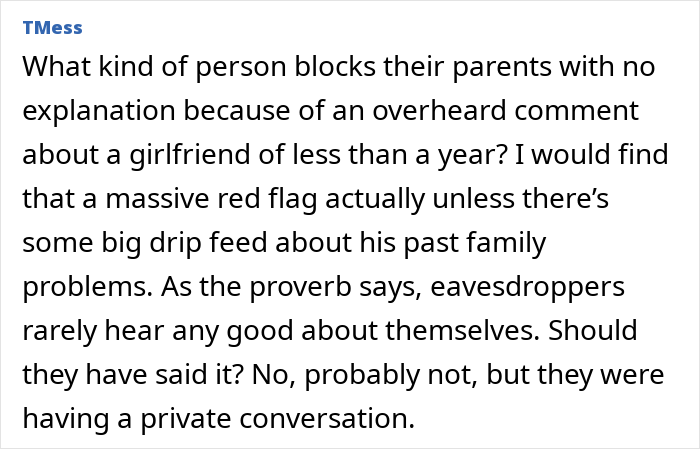
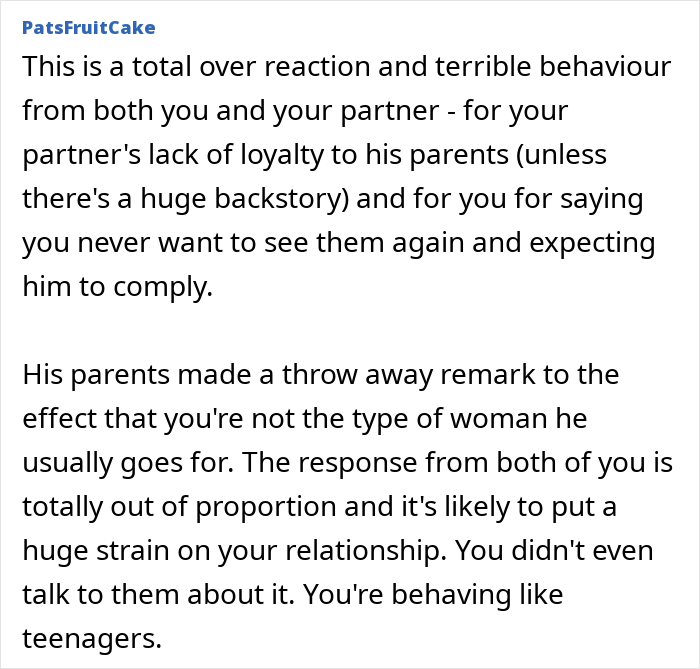
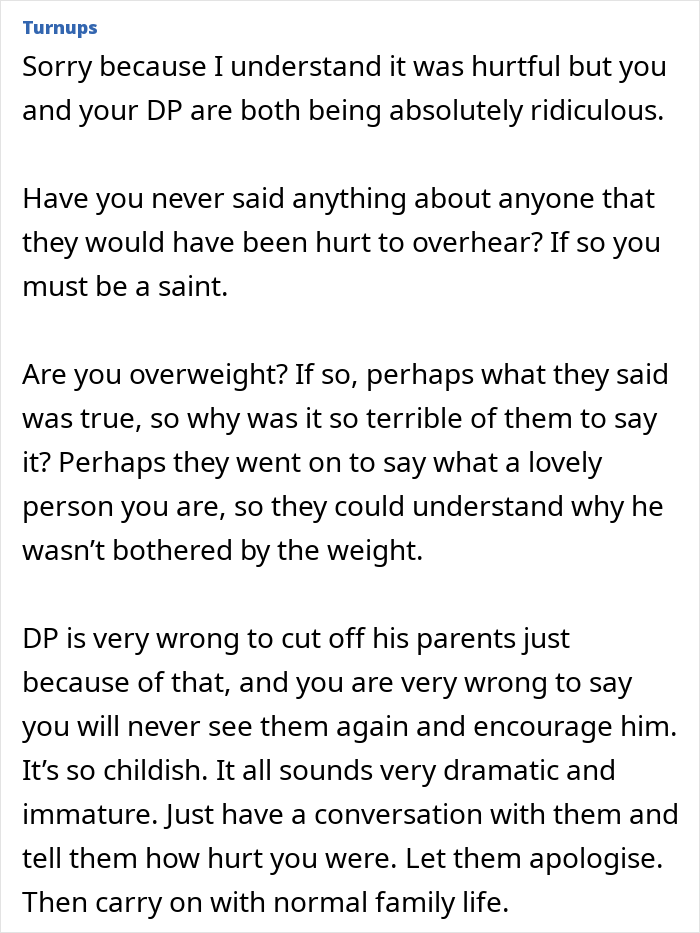
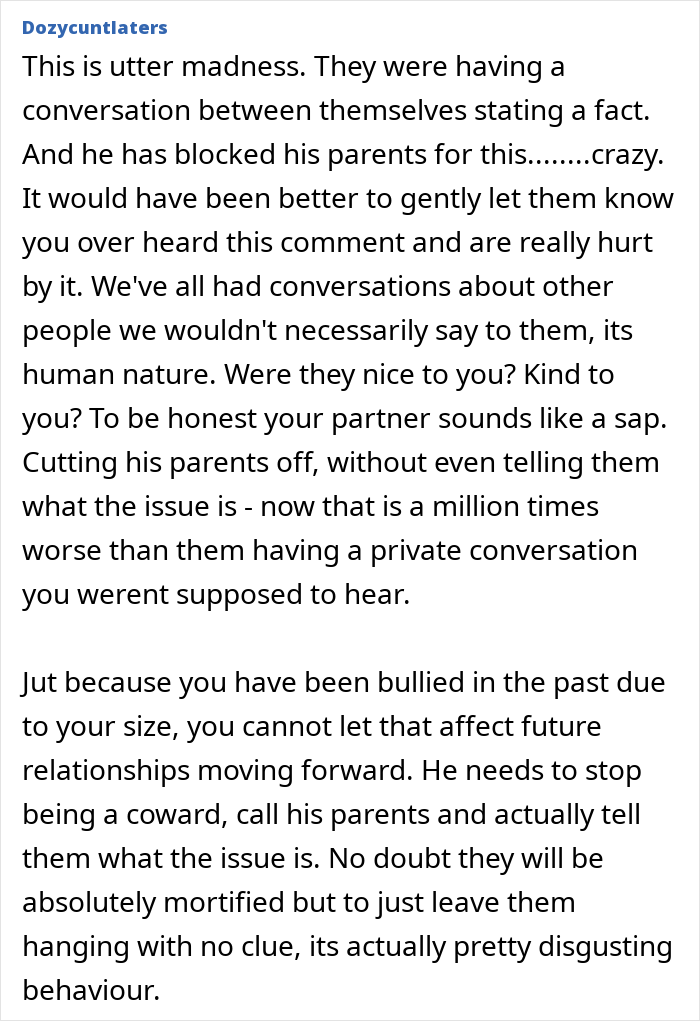
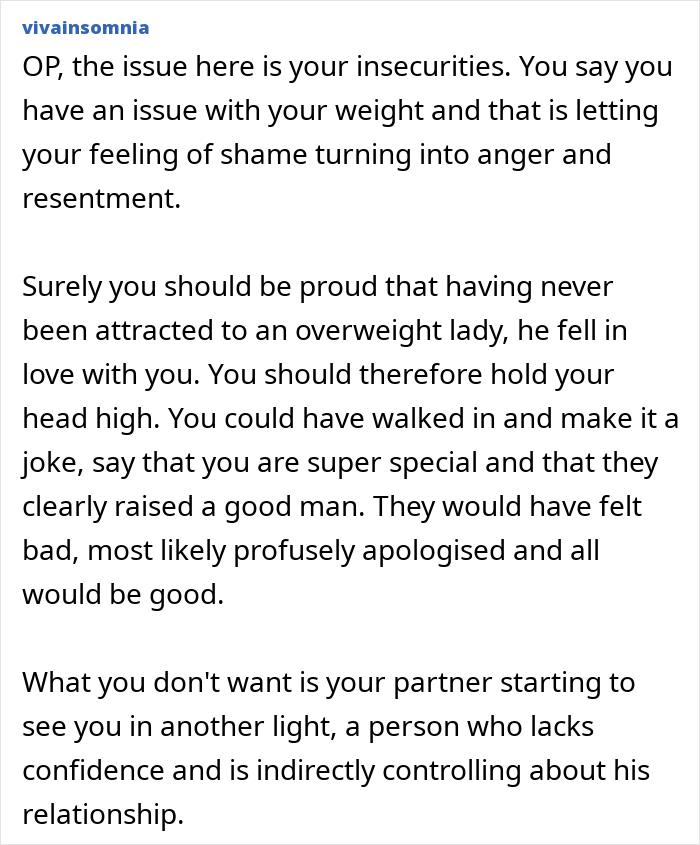
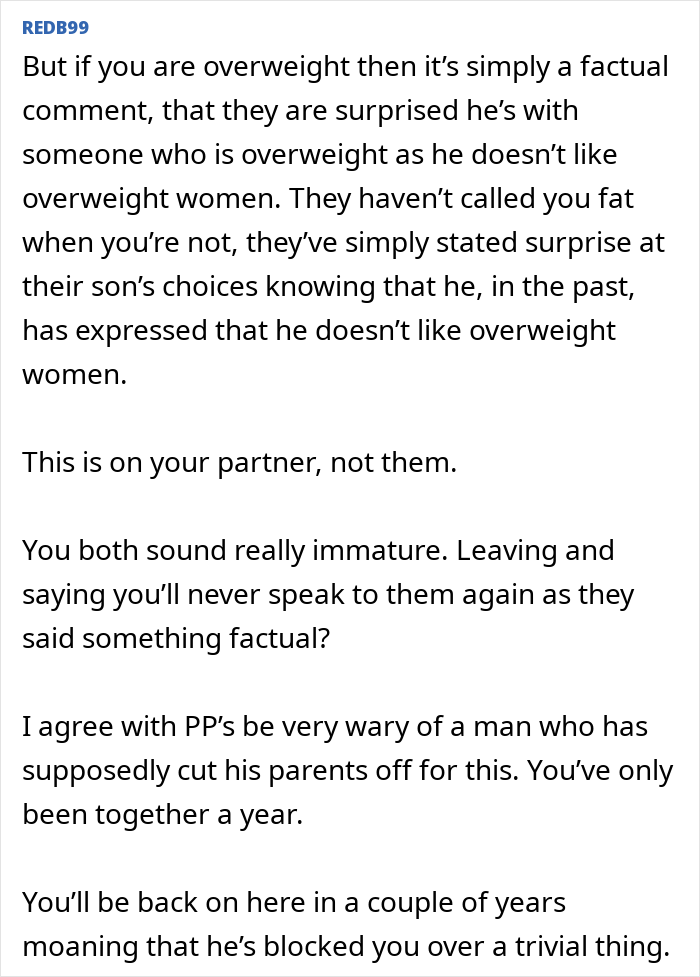
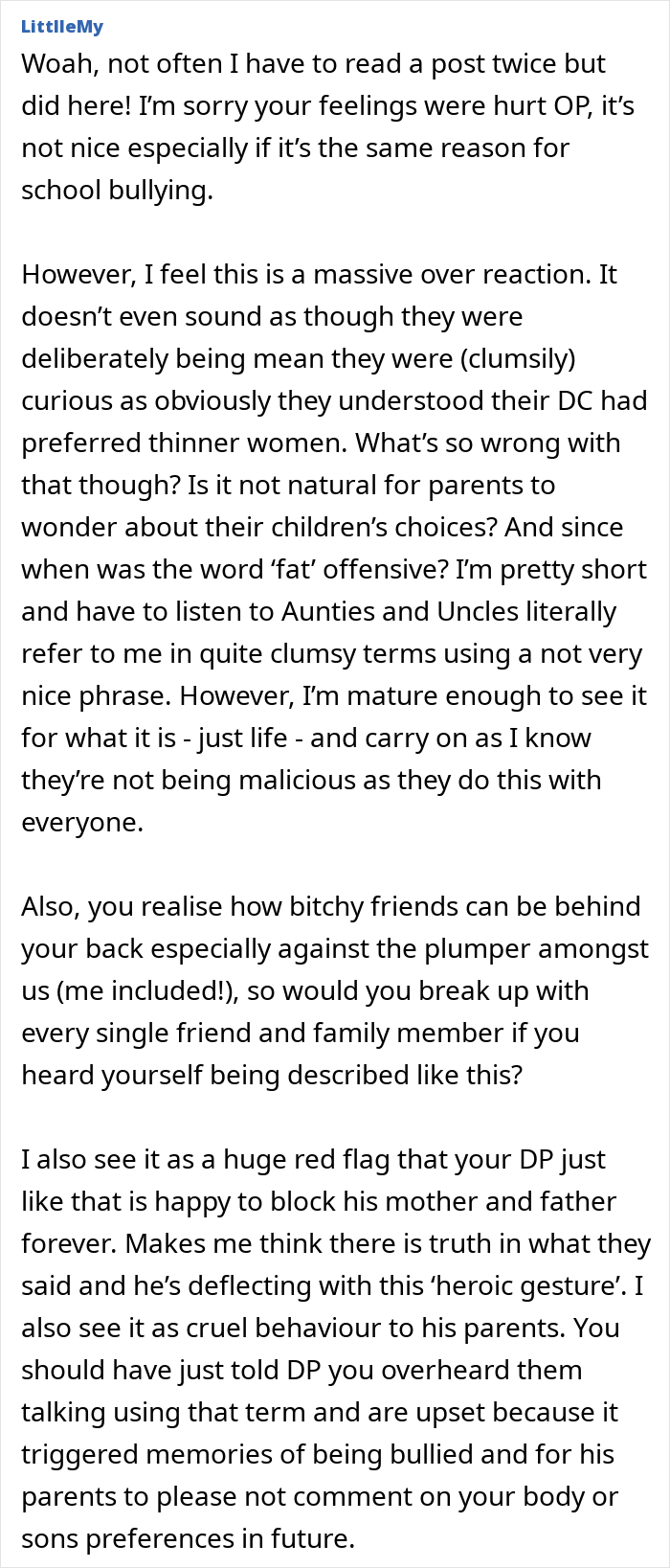

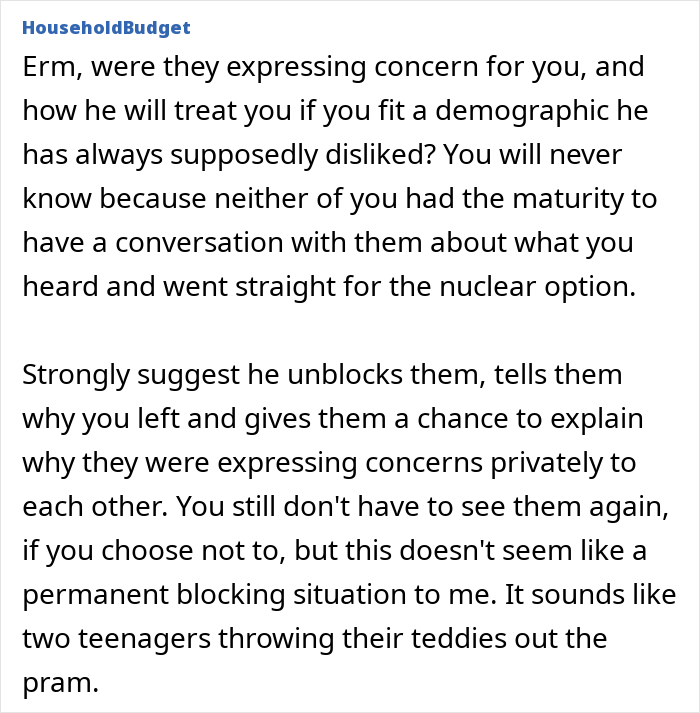
from Bored Panda https://ift.tt/uswn3ep
via IFTTT source site : boredpanda